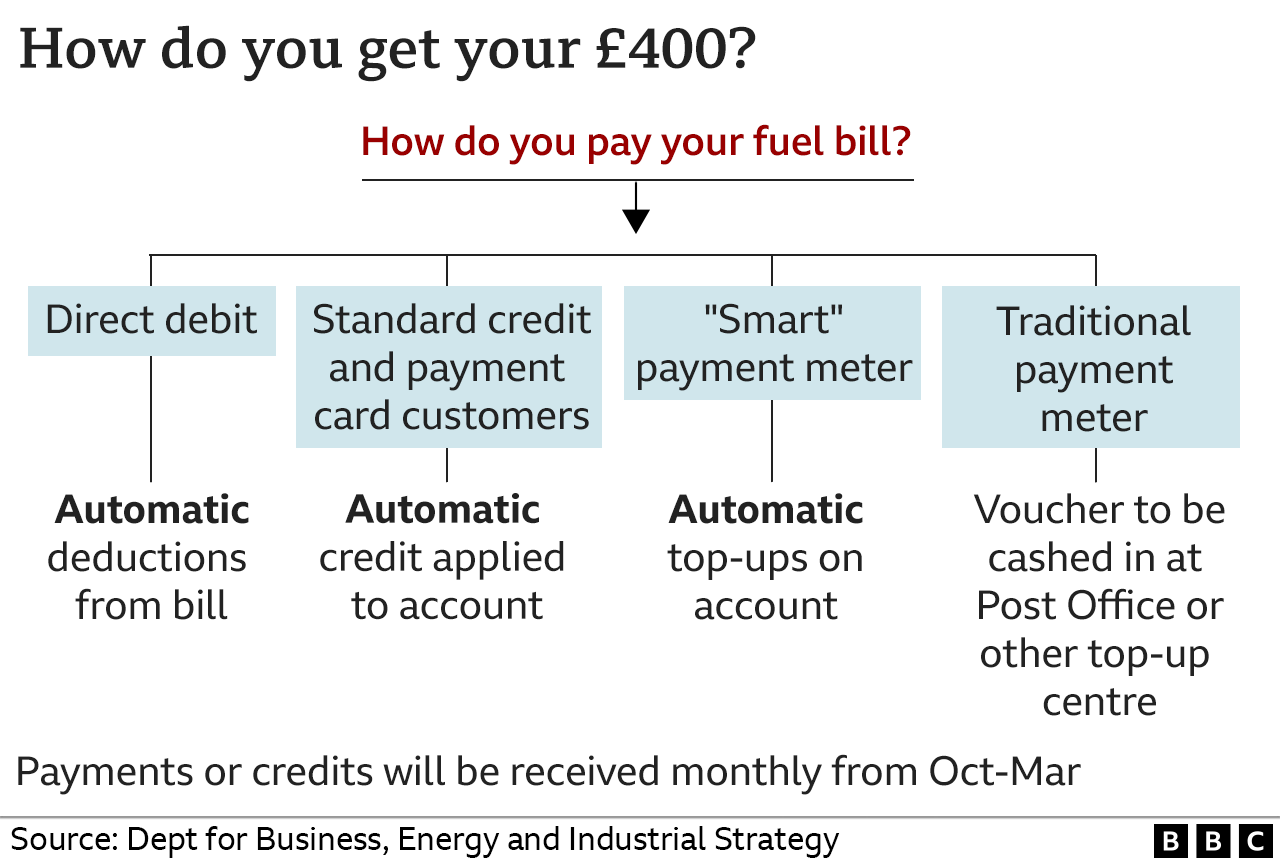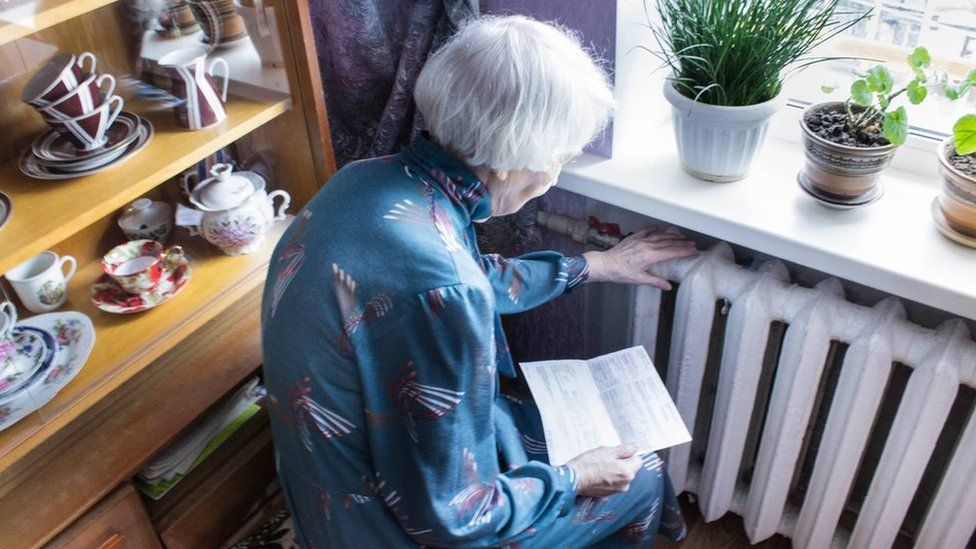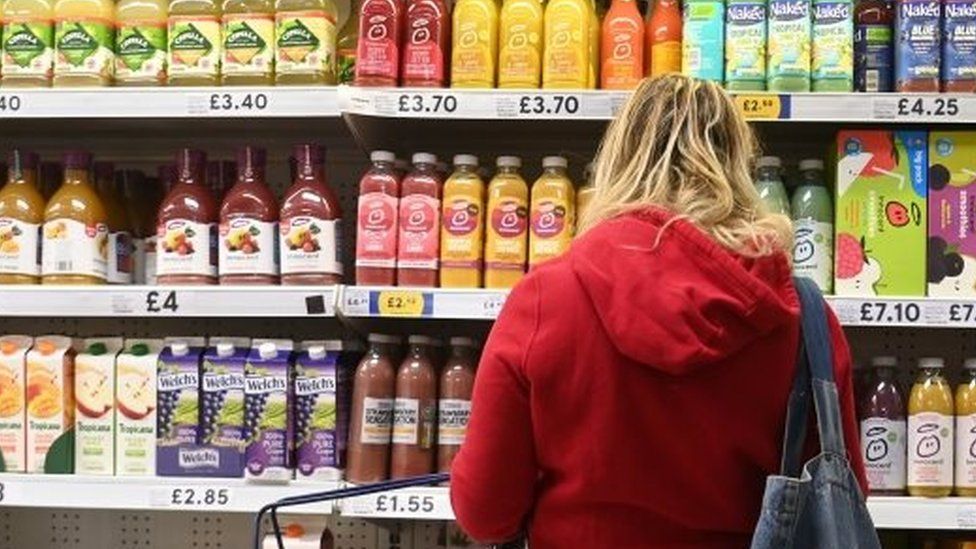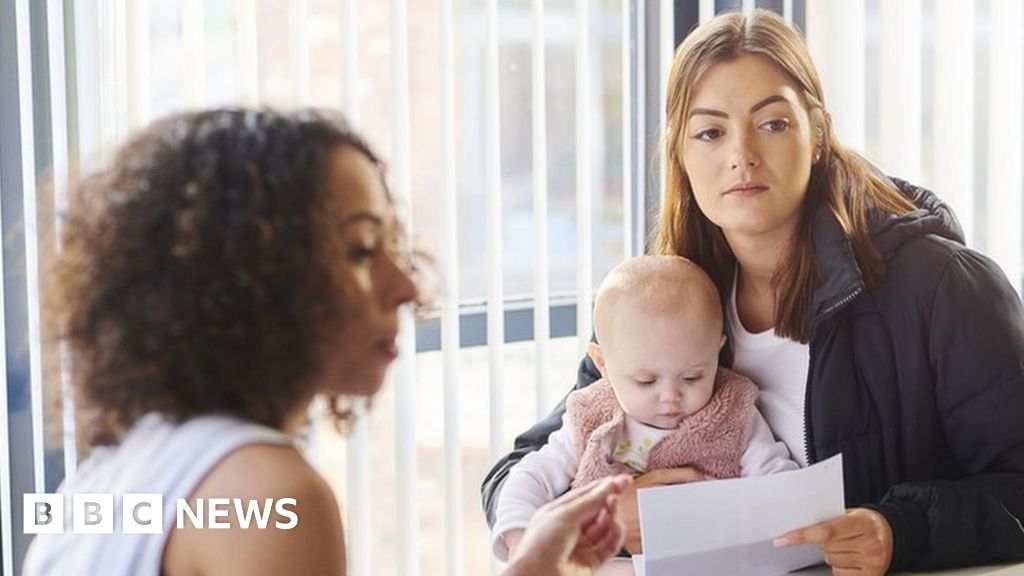By Kevin Peachey
Personal finance correspondent, BBC News
Energy bills are set to rise sharply – prompting calls for the government to offer more help.
Some households received a first payment to assist with the soaring cost of living in July, with a second due in the autumn.
Who will get the cost-of-living payment and when?
Two payments totalling £650 are being made to more than eight million low-income households who receive the following benefits:
- Universal Credit
- income-based Jobseekers Allowance
- income-related Employment and Support Allowance
- Income Support
- working tax credit
- child tax credit
- pension credit
The first instalment of £326 was paid to most people between 14 and 31 July. In a very small number of complicated cases, payments were made slightly later.
Another £324 will be paid in the autumn – but the date hasn’t been confirmed.
Those on tax credits will have to wait longer, as the first payment won’t arrive until the autumn, and the second during the winter.
The payments are made automatically into bank accounts – usually marked “DWP Cost of Living”.
People aren’t eligible if they receive New Style Employment and Support Allowance, contributory Employment and Support Allowance, or New Style Jobseeker’s Allowance – unless they get Universal Credit.
Anyone who thinks they are entitled to the help, but hasn’t got it, should contact the office that pays their benefit or tax credits.
Those who could miss out include the 850,000 pensioner households which the government says don’t claim Pension Credit, which is a gateway to these extra payments.
What about the payment for disabled people?
- Disability Living Allowance
- Personal Independence Payment
- Attendance Allowance
- Scottish Disability Payments
- Armed Forces Independence Payment
- Constant Attendance Allowance
- War Pension Mobility Supplement
None of these cost-of-living payments affect the tax you pay, or the benefits or tax credits you receive.
How will the £400 energy discount be paid?
All UK households will get a grant which will reduce energy bills by £400 from October.
Initially, this was going to be a £200 reduction paid back in instalments over five years. But the discount was subsequently doubled, and no longer has to be repaid.
In other words, from October, everyone’s energy bill will be cut by £400. This will be applied over six months, with a reduction of £66 in October and November, and £67 every month between December and March 2023.
The discount will be made automatically by energy suppliers in England, Scotland and Wales. There is no need to apply.


Direct debit and credit customers will have the money added to their account. Customers with pre-payment meters will have the amount applied to their meter, or receive a voucher.
What extra help will pensioners get for winter fuel bills?
Households that receive the Winter Fuel Payment – which is worth £200-£300 and is paid to nearly all homes with at least one person of pension age – will receive an extra £300 in November or December.
That should cover nearly all pensioners across the UK.
Lower-income pensioners who claim pension credit, will receive the money in addition to the £650 support for those on benefits which is mentioned above.
This means a small group of pensioners with disabilities will receive a total of £1,500 when all the payments and discounts are combined.


What payments have already been made?
About 80% of households are already receiving a £150 energy rebate, often through their council tax bill.
How it is paid depends whether you pay your council tax by direct debit and where you live in the UK.
Some people were given fuel vouchers through the Household Support Fund which is distributed by local councils.
How is the extra support being funded?
Companies which extract oil and gas are making much more money than they were last year.
Firms which generate electricity may also be taxed more in the future.
The levy will cover some, but not all, of the bill for the government, which means it will also have to dip into other funds.


Will the cost of living keep going up?
Prices are already rising at a faster rate than at any time in the last 40 years.
Official forecasters say that the rate is set to accelerate. Prices are not expected to fall next year, but the rate of increase is expected to slow.
The big unknown is what will happen to energy bills in the next few years.
That depends to a great extent on the war in Ukraine, and its wider impact on energy supplies from Russia.
Consultancy Cornwall Insight says that the typical domestic customer is likely to pay £3,554 a year from October, then £4,650 a year from January. The typical bill at present is about £2,000 a year.
That is a bigger hit to domestic budgets than had been anticipated when the cost-of-living payments were set. As the prime minister changes, there will be considerable attention on whether additional support will be provided.

